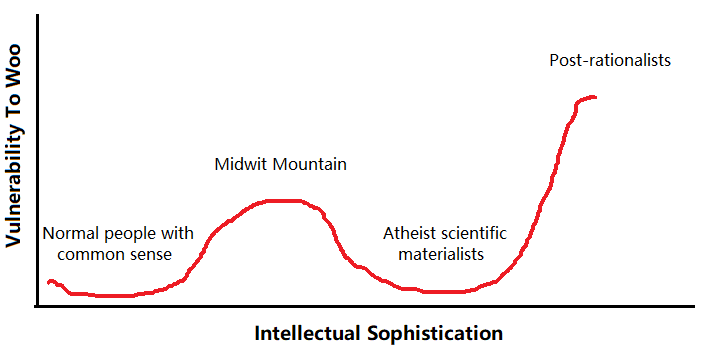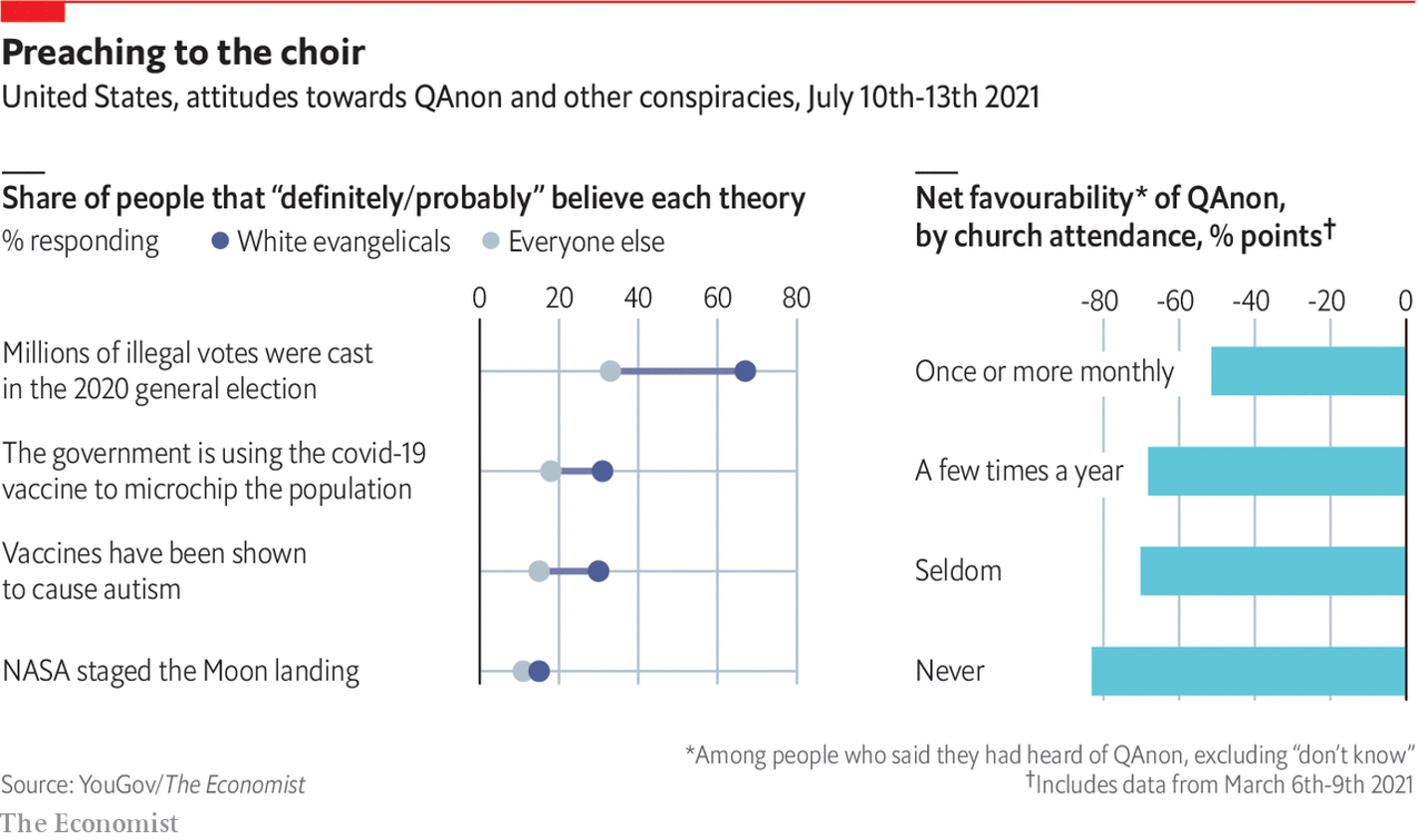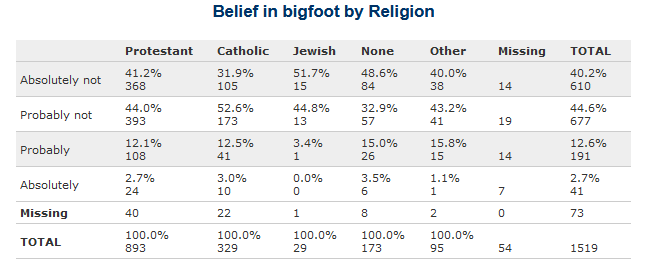Will Nonbelievers Really Believe Anything?
There’s a popular saying among religious apologists:
Once people stop believing in God, the problem is not that they will believe in nothing; rather, the problem is that they will believe anything.
Big talk, although I notice that this is practically always attributed to one of GK Chesterton or CS Lewis, neither of whom actually said it. If you’re making strong claims about how everybody except you is gullible, you should at least bother to double-check the source of your quote.
Still, it’s worth examining as a hypothesis. Are the irreligious really more likely to fall prey to woo and conspiracy theories?
 Amjad Masad ⠕ @amasadIncreasingly obvious that religion is an anti-virus for the human mind. Once you uninstall it, a bunch of mind viruses start spreading like crazy, mutating and becoming more extreme with time.[10:57 PM ∙ Apr 17, 2022
Amjad Masad ⠕ @amasadIncreasingly obvious that religion is an anti-virus for the human mind. Once you uninstall it, a bunch of mind viruses start spreading like crazy, mutating and becoming more extreme with time.[10:57 PM ∙ Apr 17, 2022
9,125Likes959Retweets](https://twitter.com/amasad/status/1515826931375116288)
This Economist article examined the question and concluded the opposite. See especially this graph:
“White evangelicals” are more likely to believe most measured conspiracy theories, and churchgoers were more likely to believe in QAnon in particular.
There’s an obvious confounder here: the authors are doing the usual trick where they cherry-pick right-wing examples of something bad, show that more right-wingers are in favor of them, then conclude that Science Has Proven Right-Wingers Are Bad. QAnon, illegal votes, and COVID microchips are inherently right wing conspiracy theories; vaccines/autism has probably become right-coded post-COVID. Only the moon landing seems politically neutral, and it’s hard to tell if there’s a real difference on that one. So this just tells us that white evangelical church-goers are further right than other people, which we already know.
These data still deflate some more extreme claims about religion being absolutely protective against conspiracy theories. But I was interested in seeing how people of different faiths related to politically neutral conspiracies.
Here’s Pew on who believes in UFOs:
The two most skeptical groups are . . . evangelicals and atheists. Quite the Baptists and Bootleggers alliance.
Here’s belief in Bigfoot by religion and worship attendance
I would ignore the Absolutely category, which is too small to have a good sample size, and look at who says “Absolutely Not” vs. weaker versions (in theory some groups could be open-minded and less likely to take strong positions on either side, but it doesn’t look like that happens here).
People of “none” religion are less likely than any religion except Jews to believe in Bigfoot. Somehow at the same time, the less often you go to church, the more likely to believe in Bigfoot you are.
And here’s astrology:
 One out of four people with postgraduate degrees believes in astrology?!
One out of four people with postgraduate degrees believes in astrology?!
We find a similar pattern. Agnostics and people with “no particular religion” are more likely than Protestants to believe in astrology, but outright atheists are much less likely.
I would have liked to look into JFK and 9/11 conspiracies, but I couldn’t find great data. There is a Zogby poll which says 47% of evangelicals believed Bush knew about 9/11, but different sources give the base rate as either 41% or 49%, which makes it hard to tell if evangelicals are higher or lower.
Overall I think these results support the fake Chesterton/Lewis quote, but in a weird and unexpected way.
Strongly religious people and outright atheists were usually less likely to believe in conspiracy theories. The conspiracy believers were usually somewhere in the middle: either weakly religious people who never went to church, or vague agnostics.
One possible explanation is that people with any coherent worldview are smarter or at least more intellectual than people who don’t care. I don’t think this can fully explain these results: although following the logical implications of Christian belief would make you go to church a lot, I don’t think this is why most frequent churchgoers do it. Most churchgoers do it because they come from families and areas where going to church is expected.
Another possible explanation is that people with coherent worldviews already have strong opinions on what’s true, making them closed-minded against conspiracy theories. For example, if God created humans in the Garden of Eden, that doesn’t leave a lot of room for aliens and UFOs. Or, since atheists believe everything works through purely physical scientifically-measurable forces, that doesn’t leave a lot of room for astrology.
But this one doesn’t quite work either: neither scientific materialism nor Biblical literalism precludes Bigfoot. God and/or Evolution created all sorts of weird ape species; why shouldn’t there be one more?
Maybe there’s not a single explanation. Maybe the religious people don’t believe it because it sounds too much like consorting with demons, and the atheists don’t believe it because they’re already pre-selected for skepticism and not believing in things? I don’t know.
Still, if someone tells you that people who don’t believe in God will believe in anything, please politely correct them that this is only true until the point where they 100% accept scientific materialist atheism, at which point they go back to mostly not being that gullible again.
 Some speculate that there are even more peaks and valleys, an ever-changing landscape stretching out into infinity.
Some speculate that there are even more peaks and valleys, an ever-changing landscape stretching out into infinity.



